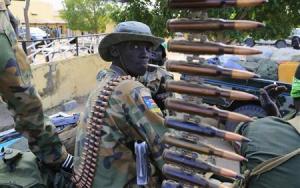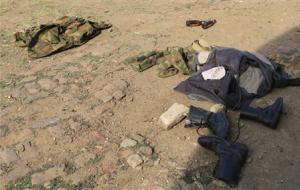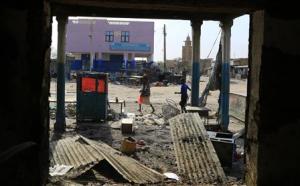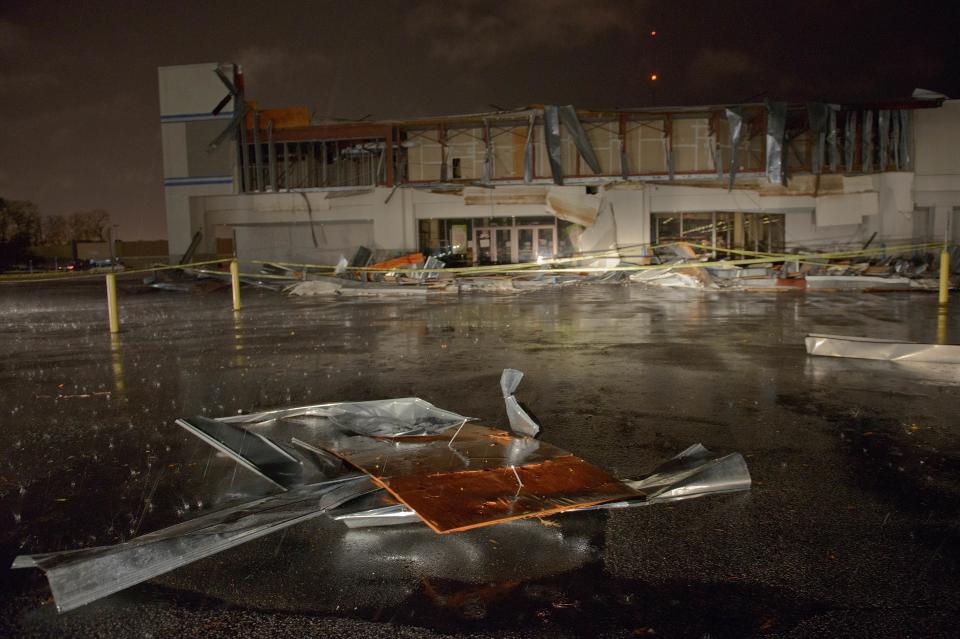JUBA (Drive Hot Blog) - South Sudan's
government and rebels are set for New Year's Day peace talks in
Ethiopia's capital, Addis Ababa, to thrash out a ceasefire to end weeks
of ethnic bloodletting in the world's newest state.
Both sides agreed to a ceasefire on Tuesday, mediators said, but
fighting between government troops and militias loyal to former Vice
President Riek Machar raged in Bor, the capital of the vast Jonglei
state and site of an ethnic massacre in 1991.
"I'm worried that the continued fighting in Bor might scupper the start
of these talks," said Ethiopian Foreign Minister Dr. Tedros Adhanom,
who is chairman of the regional Intergovernmental Authority on
Development (IGAD) bloc that is mediating the talks.
"Hopefully both delegations will arrive tomorrow (Wednesday), start the
talks and settle this problem once and for all," Adhanom told Reuters
by phone from Addis Ababa.
Western and regional powers have pushed both sides to end the fighting
that has killed at least 1,000 people, cut South Sudan's oil output and
raised fears of a full-blown civil war in the heart of a fragile region.
It was not clear who
controlled Bor on Tuesday night after a day of heavy fighting that
started at dawn in the dusty town, which was held by Machar's rebels for
a few days at the start of the conflict. Nearly 200,000 civilians have
been displaced.
The United
Nations Mission in South Sudan said ethnic-based atrocities, often
carried out against civilians by uniformed men, have taken place
throughout the newly independent South Sudan.
"This can lead to a perpetual cycle of violence that can destroy the
fabric of the new nation," the United Nations warned in a statement.
About 9,000 civilians are seeking refuge at the U.N. base in Bor.
The clashes erupted on December 15 with fighting among soldiers in
Juba. The violence quickly spread to half of the country's 10
states, dividing the country along the ethnic lines of Machar's Nuer group and President Salva Kiir's Dinkas.
Kiir has accused his
long-term political rival Machar, who he sacked in July, of starting the
fighting in an effort to seize power.
Machar has denied the charge, but he has taken to the bush and has
acknowledged leading soldiers battling the government. There have been
conflicting reports on whether Machar was in full control of the Nuer
"White Army" militia fighting in Bor, though on Tuesday he told the BBC
they were part of his forces.
The White House pressured all sides to cease hostilities and allow humanitarian assistance to flow to civilians.
"The United States will deny support and work to apply international
pressure to any elements that use force to seize power," White House
spokeswoman Caitlin Hayden said in a statement on Tuesday. "At the same
time, we will hold leaders responsible for the conduct of their forces
and work to ensure accountability for atrocities and war crimes."
The fighting has revived memories of the factionalism in the 1990s
within the Sudan People's Liberation Movement, the group that fought
Sudan's army in the north for two decades. Machar led a splinter faction
and fighters loyal to him massacred Dinkas in Bor.
TALKS, "CATASTROPHIC" CONDITIONS
Both the government and the rebels said earlier on Tuesday that they
were sending teams to start talks in neighboring Ethiopia, though Machar
told the BBC on Tuesday that he was not prepared to lay down weapons.
The U.S. special envoy to South Sudan, Donald Booth, said the
commitment to send negotiators was an "important first step" towards a
negotiated settlement.
Ugandan President Yoweri Museveni said on Monday that East African
countries had agreed to move in and defeat Machar if he rejected the
ceasefire offer, threatening to turn the fighting into a regional
conflict. No other countries have confirmed any such an agreement.
"The town is still partly in our hands and partly in the hands of the
rebels," Mayor Nhial Majak Nhial told Reuters on Tuesday from the
government's military headquarters inside Bor, 190 km (120 miles) north
of Juba by road.
Medical
charity Medecins Sans Frontieres (MSF) said about 70,000 civilians had
fled Bor and sought refuge in the town of Awerial in neighboring Lakes
state, with no access to food, clean water or shelter. Others were
hiding in swamps.
"Living conditions are verging on the catastrophic," MSF said.
According to United Nations figures, fighting across the country has
displaced at least 180,000 people, including 75,000 who are seeking
refuge inside U.N. bases.
The
African Union said late on Monday it was dismayed and disappointed by
the bloodletting that came two years after South Sudan won independence
from its northern neighbor, Sudan.
The AU's Peace and Security Council said it would "take appropriate
measures, including targeted sanctions, against all those who incite
violence, including along ethnic lines, continue hostilities (and)
undermine the envisaged inclusive dialogue."





















